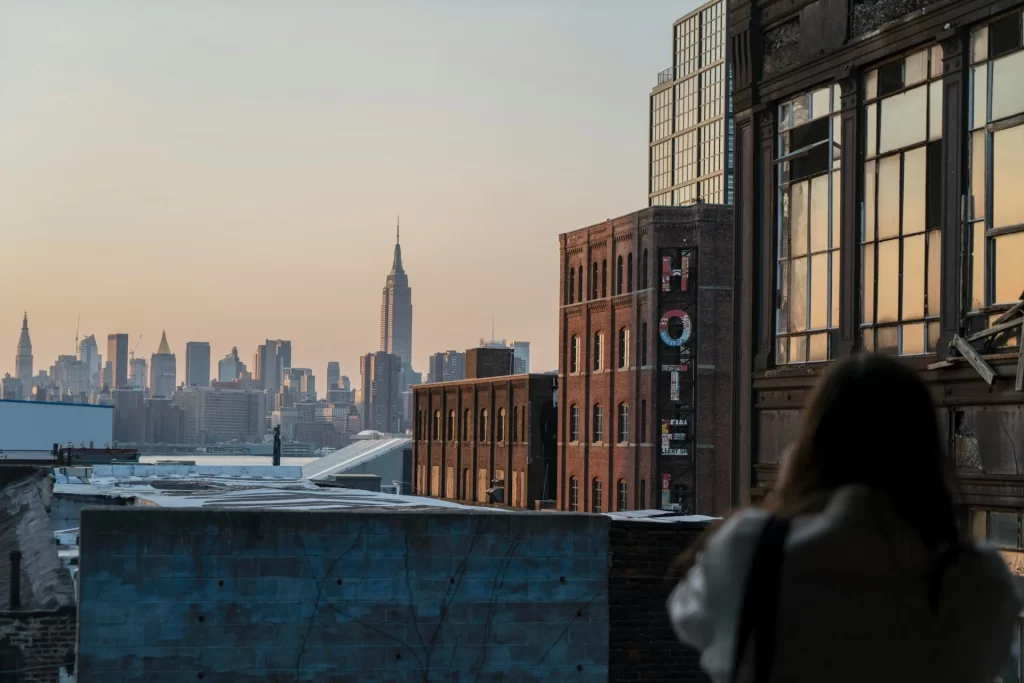
When planning a trip, choosing the right accommodation can make or break your experience. By prioritizing safety in your accommodation choice, you set the stage for a more enjoyable and worry-free journey.
Beyond just staying safe, the right accommodation and security systems can also elevate your productivity if you’re getting work done during your trip.
Many people have the impression that hotels have more robust security systems compared to Airbnbs.
While this assumption isn’t surprising, it isn’t always true. There are also situations where Airbnb may offer a more secure option.
Don’t worry – wherever you choose to rest your head, we’ll explore the safety aspects of both accommodation types to ensure a safe stay.
Why Hotels May Be Safer
You’ve finally hopped off the plane, with your itinerary in hand, ready for an adventure. As you excitedly arrive at a sleek hotel, you’ll notice more than just the polished lobby and stylish decor—you’ll also see 24-hour front desk service, surveillance cameras discreetly monitoring the premises, and regular security patrols.
These ‘boring’ hotel features might seem unremarkable, but they give you an increased sense of safety and reassurance, such that you can fully relax and enjoy your trip.
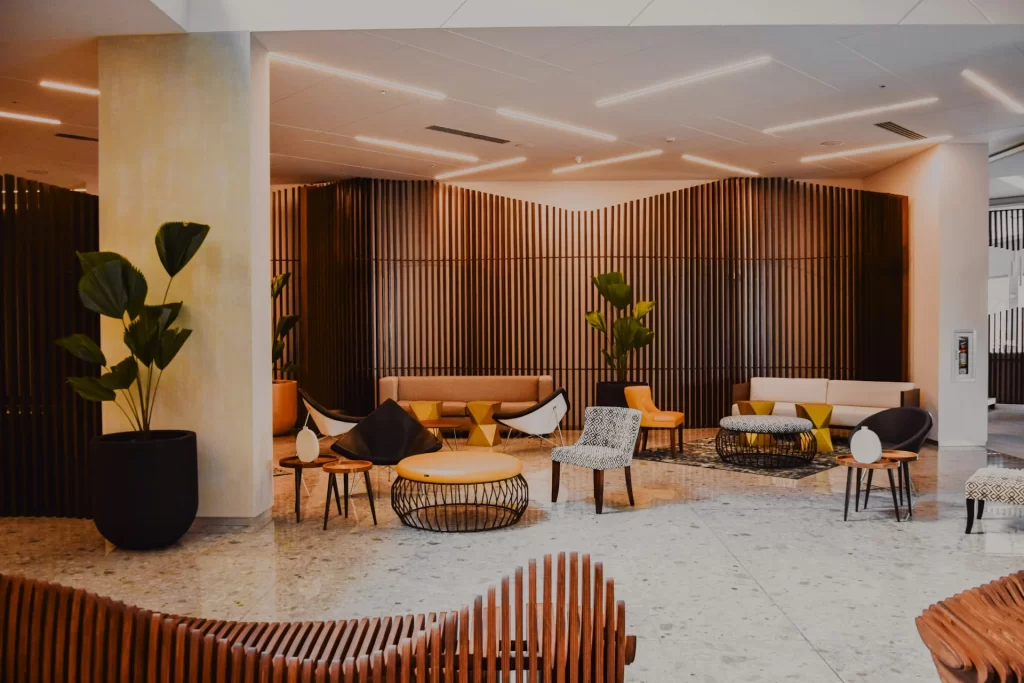
Dedicated to travelers, hotels are required to follow stringent safety and security regulations. These often include:
- 24-hour front desk service
- Secure key card access systems, locks, and safes
- Extensive surveillance cameras
- Regular security patrols
- Trained staff available round-the-clock for prompt assistance.
Airbnbs, on the other hand, are not specifically catered to tourists. Unlike hotels with the aforementioned safety protocols, the security standards can vary widely across Airbnb properties.
Picture the local residents going about their daily routines as you step out of your Airbnb each morning. These are residential properties, and the safety measures in place differ from one listing to another because each property is independently managed.
Not all Airbnb hosts would go the extra mile to implement a foolproof set of security precautions. While you can rely on hotels, no matter their star rating, to have established protocols and trained staff available 24/7 for security concerns and emergencies, Airbnbs often lack this level of formal accountability.
As a guest on Airbnb, you’re conditioned to be more reliant on self-management and the responsiveness of individual hosts.
The safety of an Airbnb largely depends on the host’s diligence and the property’s specific features, such as secure locks, smoke detectors, and emergency exits. Although some hosts may provide security amenities, they are not universally guaranteed.
Why Hotels May Not Always Be Safer Than Airbnb
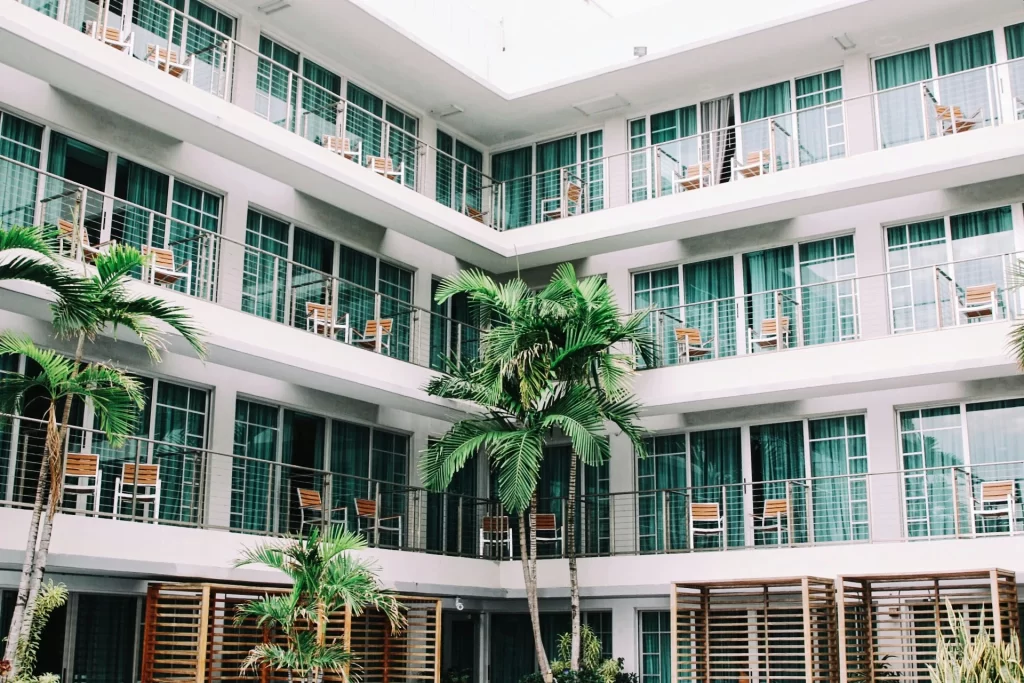
On your next trip, don’t fall into a false sense of security just because you opted to stay in a nice four-star hotel. Despite the advantages, hotels are not always the safer option.
Imagine you’re staying in a mid-range hotel that experiences disturbances from other guests, entailing noise and rowdy behavior. Now, consider that the hotel is located in a neighbourhood prone to petty crime, where travelers are seen as easy targets.
In such a scenario, you might actually be less secure than if you were staying in an Airbnb offering high levels of security in a low-crime neighborhood.
Here are common reasons why hotels may not be the safer option:
- Unsafe neighborhoods: Even the most secure hotel cannot change the nature of its surroundings. If a hotel is located in an area prone to crime or unrest, guests may be at risk when traveling to and from the property or when exploring the local neighborhood.
- Hotels as targets for crime: Due to the high concentration of tourists, thieves may see hotels as prime locations to steal valuable items from guests.
- Budget hotels with subpar security measures: Budget hotels may be more vulnerable to security breaches, as some lack adequate surveillance cameras and anti-theft technology.
- Disturbances from Other Guests: Budget or mid-range hotels may suffer from rowdy guests, who can create unsafe environments for other travelers.
While hotels might feel safer due to their visible security measures, it doesn’t mean they are always the most secure option. Similarly, while Airbnbs may lack a front desk or round-the-clock staff, they can still be secure if equipped with the right technology, tools, and located in a safe neighborhood.
This article was originally published on unboundist.com. If it is now published on any other site, it was done without permission from the copyright owner.
How to Cover Your Bases: Ensuring Safety Wherever You Stay
Regardless of whether you choose to stay in a hotel or an Airbnb, there are steps you should take to enhance your safety, cover your bases, and enjoy a worry-free stay.
1. Do Your Research
Research entails more than just reading the hotel or Airbnb listing’s description, or taking a look at the pictures of the property. Research also goes beyond making notes or comparing details across properties.
Beyond these basics, do your research in the form of the following:
- Reading reviews
- Researching the neighbourhood
One of the most reliable ways to gauge the safety of a hotel or Airbnb is by reading reviews from past guests. Look for consistent comments regarding safety, security features, and the responsiveness of the host or hotel staff to safety concerns.
Important note: If you’re concerned about the legitimacy of accommodation reviews, I've specifically explored this topic for Airbnbs, along with the broader discussion of how to effectively use reviews to enhance your stay.
Secondly, take time to research your neighbourhood. Check local crime rates, browse travel forums, and look up recent news about the area. Understanding the local context can do wonders, helping you avoid risky areas and plan safer routes.
Regarding Airbnb, the exact location of your potential stay will not be shown, until after a booking is made. Thereafter, it’s important to check your exact address and look into the immediate areas surrounding your accommodation for any red flags.
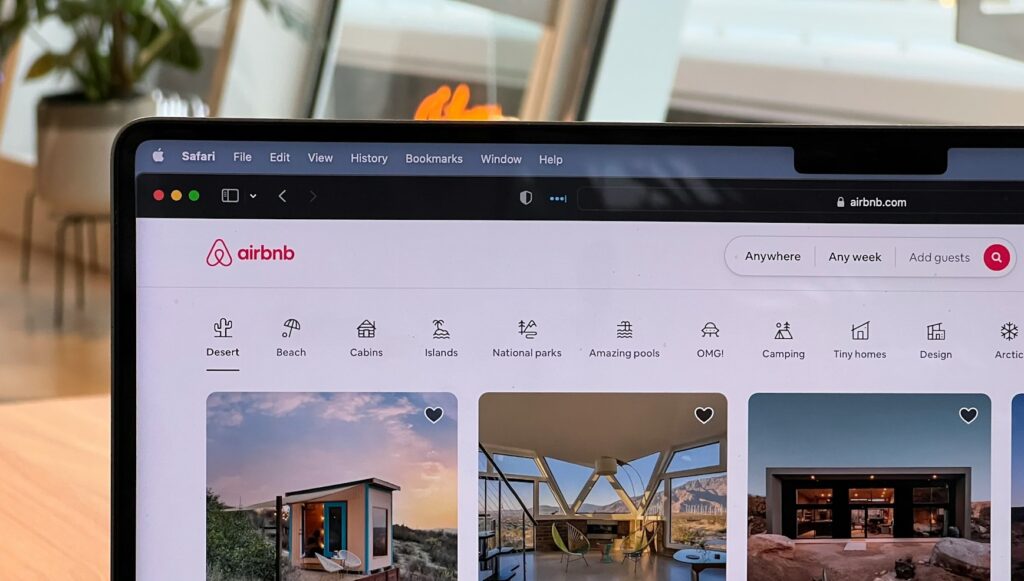
2. Optimize Your Accommodation
Before you finalize your booking, think about how to optimize your stay, considering the safety aspects.
Make thoughtful choices about their accommodation, such as deciding between living alone or with others in an Airbnb, or choosing a hotel with adequate security measures.
First, communicate with your host. Don’t be afraid to questions about the property, its amenities, and the neighborhood. Ask about security measures, such as surveillance cameras, locks and safes, and the presence of security personnel.
A responsive and transparent host tends to be a good indicator of a safe property.
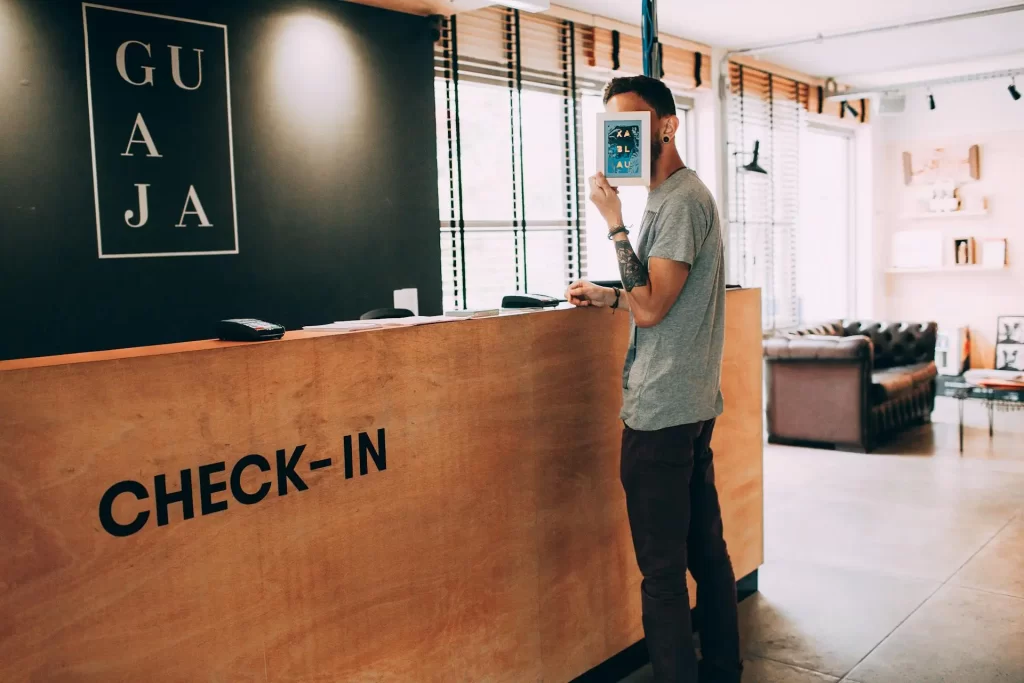
Second, decide on your living preferences: consider if you prefer to stay in an entire place by yourself, or share a flat with the host or other guests.
Staying alone in an entire Airbnb property can provide a quieter and more controlled environment, while having a host nearby can offer immediate assistance and personalized tips. It’s up to you – evaluate your comfort level and choose the option that makes you feel safest.
While rare, there have been reports on forums of guests experiencing assaults by their hosts, prompting discussions on how to mitigate risks. Some users suggest only booking properties listed as “entire home” or choosing to stay with couples who are both positively reviewed as hosts, or with gay men, as ways to enhance safety.
In any case, take precautions if sharing space with others. Ensure your room has a lock, keep valuables secured, and ultimately trust your instincts; leave if you feel uncomfortable.
3. Travel Tactically With Your Devices
The last category of tips I’ll mention is general safety when traveling with tech devices.
You shouldn’t travel a lot if you lack a basic sense of managing your personal belongings and valuables. When it comes to precious tech tools like your laptop and smartphone, you’d want to learn the best tips for safeguarding them against damages or theft during travel.
There are several strategies but they can be grouped as such:
- Using good personal habits
- Storing essentials securely
- Using anti-theft tools
Good personal habits relate to behavioral aspects during travel, such as whether you carry your day bag securely, ideally on the side of your body away from the street to prevent easy snatching.
Storing essentials securely entails choosing the right bag that’s purpose-built to store your tech, and storing and handling your tech equipment with care, be it on a flight or while on the move.
Anti-theft tools provide an upgrade, giving you added peace of mind especially if you constantly find yourself in unsafe situations. Consider investing in laptop locks, clips, or portable safes designed for travel. Get an anti-theft backpack if you can afford it, particularly if you live or frequent the outdoors in a city that isn’t low crime.